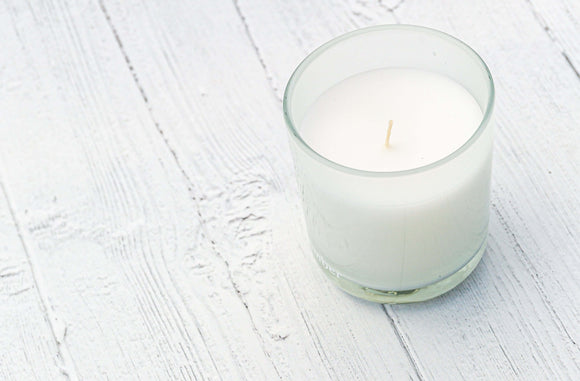
Natural air purifiers
Shelagh McNally
Air quality has never been more important
This winter season we are spending more time than normal indoors and concerned over respiratory health.
More companies than ever are offering air fresheners or diffusers kits that harness the power of essential oils. However, not all air purifiers are created equal. Many big brand names selling air freshener or air purifying kits actually contribute to indoor air pollution thereby doing more harm than good.
No regulations
Part of the problem is the lack of regulations and standards for either air fresheners or purifiers. And that leaves us vulnerable.
A study done by the University of Washington, Seattle, found that a single artificial fragrance contains a dangerous mixture of chemicals that combined into VOCs (volatile organic compounds). These VOCs release carcinogenic particles onto the air creating indoor pollution.
The most commonly ingredients in many plug-in air fresheners and diffusers are phthalates, naphthalene and formaldehyde all masked as lemon, lavender or pine smells. Phthalates are particularly dangerous since enter the bloodstream to cause hormonal changes and respiratory issues while formaldehyde has been linked to irritation of the throat and airways, asthma leading to cancers of the nose and throat. Naphthalene has been linked to tissue damage and cancer of the lungs.
Return to basics
Fortunately there are natural alternatives that are far safer and deliver on the promise of cleaner indoor air. Charcoal filters is a proven a technology used for many years in water purifiers, gas masks and other air filtration units. It’s been reinvented as household air purifiers using activated charcoal, which has been treated with oxygen to open up its pores. Because it is so porous activated, activated charcoal draws in toxic chemicals and odours to bond with them and capture them. The effects last for many months and since charcoal is an inexpensive material, these filters have the benefit of being affordable and long lasting.
Cleansing scents
Essential oils, known for their calming effects, have also been recognized for their antibacterial power. A study at the University of Seoul and several other research facilities have measured the effects of aromatherapeutic oils on airborne bacteria. The Seoul study used a specially designed bio-clean room where three different concentrations of essential oils were sprayed in up to five minutes and then free-floating airborne bacteria was collected every 10 minutes in 10 seconds intervals. The results showed that doses of 0.6% of essential oils inhibited the growth of many airborne bacteria. However, these benefits only work with natural essential oils and not with synthetic scents.
Oils with the strongest antibacterial and antiviral power included eucalyptus oil, tea tree geranium, lavender, citricidal (grapefruit seed extract, lemon, orange) and pinene oils such as pine, spruce, fir as well as rosemary.
Popular scents
There are some scents that used more than others in air purification due to their popularity and accessibility.
Lavender: This classic oil is popular in soaps, shampoos, massage oils and herbal teas. Lavandula angustifolia is famous for its soothing and calming smell also has strong antibacterial properties.
Eucalyptus: With its slightly minty honeyed, this oil is famous for soothing congested mucous membranes and relieving asthma but it too has a strong antibacterial effect. It’s often paired with lavender for a pleasing combination.
Pink grapefruit: Its sweet and sour flavour is instantly recognizable. This oil belongs to the citricidal family known for its high levels of limonene and myrcene giving it powerful antiviral and antimicrobial properties.
Coriander: Coriander and cilantro are actually the same plant but coriander oil comes from the seeds that are high in linalool. It has a sweet, herbaceous, woody smell and is one of the most effective antimicrobials against most bacteria.
Passion fruit: Also known as maracuja, this oil has a delicate sweet musky smell. It’s most popular in skin care products for its analgesic and antifungal properties but also for calming and soothing effects.
Tips for buying
Using a diffuser is one of the best ways to get these scents into the air. Any oils diluted or combined with other oils such as coconut or almond oil can’t be used in a diffuser.
Always be sure to buy authentic, natural oils from a verified source. Looks for packaging in tightly sealed dark amber or blue glass bottle with a label stating the common and Latin name of the plant. Be wary of prices that seem too good to be true as the cheap prices indicate a synthetic oil.
Links
- https://pubmed.ncbi.nlm.nih.gov/22751732/
- https://www.ncbi.nlm.nih.gov/pmc/articles/PMC3018511/
- https://pubmed.ncbi.nlm.nih.gov/30795725/
- https://academic.oup.com/jac/article/47/5/565/858508
- https://pubmed.ncbi.nlm.nih.gov/15555788/
Products
- Attitude - Air Purifier with activated carbon- 6 scents
- Divine Essence - Essential Oils - Lavender
- Divine Essence - Essential Oils - Eucalyptus
- Divine Essence - Essential Oils - Pink Grapefruit



